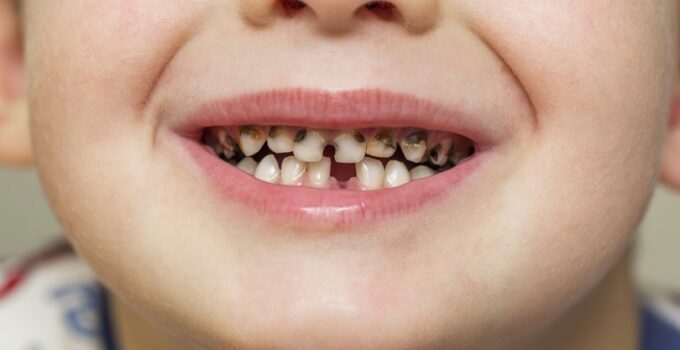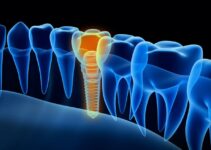Cavities can be a common dental problem in children and preventable if you know the causes. Cavities primarily form from poor oral hygiene, but other factors contribute to their formation. With proper knowledge of what causes cavities, parents may be able to fully understand why their child is developing them and how to properly prevent more from forming in the future.
In this article, we will discuss what leads to cavities in children and cover step-by-step techniques for avoiding common cavity issues – so that kids of all ages can enjoy healthy smiles for life!
Page Contents
What Is Tooth Decay in Children?
Tooth decay is the deterioration or disintegration of tooth enamel. Enamel is the outer, tough layer of a tooth. Tooth decay may result in cavities (caries). These are tooth cavities.
Tiny gaps or holes form in the enamel of your teeth as a result of areas of persistent damage. Cavities, commonly known as tooth decay or caries, are caused by a variety of causes, including oral bacteria, frequent eating, drinking sugary beverages, and poor oral hygiene.
According to a study, approximately 43% of children between the ages of 2 and 19 have cavities. However, it’s not simply Halloween sweets that cause cavities. Assisting your child in establishing good oral hygiene practices today can educate them on how to preserve their teeth in the future. Consequently, kids may attend dentist appointments with a grin and leave knowing they have no cavities.
What Causes a Child’s Tooth Decay?
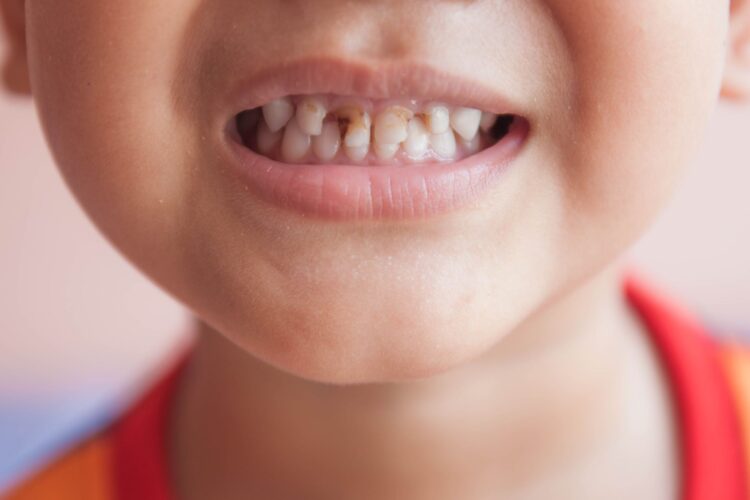
Source: hurstpediatricdentistry.com
The deterioration of teeth is caused by germs and other factors. It can occur when carbohydrate-containing meals (sugars and starches) remain on the teeth.
These items include milk, soda, raisins, candy, cake, fruit juices, cereals, and bread. Normally occurring bacteria in the mouth convert these foods into acids. Plaque sticks to the teeth and is formed of bacteria, food, acid, and saliva. The bacteria-produced acids slowly destroy tooth enamel, causing cavities.
A Gentle Reminder
As a parent, we want the best for our children, such as limiting screen time for our children. Parents play a big role in their child’s oral health, and they must be properly equipped with the knowledge of what causes cavities. A gentle reminder to parents is that sugar, sticky and starchy foods can cause cavities in your children’s teeth.
Therefore, it is important to limit the number of snacks with high sugar content and encourage healthy snacking habits. Additionally, regular brushing two times a day to ensure proper dental hygiene should be encouraged. Regular trips to the dentist for check-ups are also important for your child’s oral health. Dentists can provide advice on proper care and tips on what types of foods should be avoided.
Lastly, good oral health habits should be started early in life as they will have greater impacts on the overall health of our children in the long run. Your child can avoid cavities altogether with the right dental care routine at home and regular check-ups with the dentist. If you have any questions or concerns about your child’s oral hygiene, please don’t hesitate to consult with a pediatric dentist in Alexandria, VA.
Treatment for Cavities
Dental Fillings
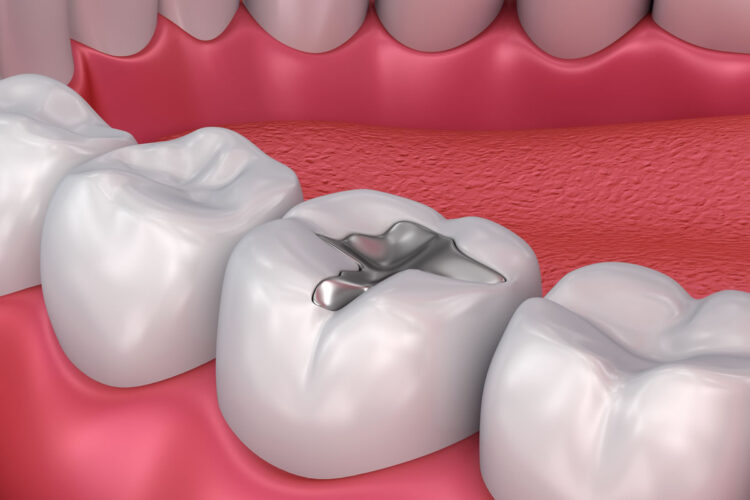
Source: fusioncentre.co.ke
There are various approaches for treating dental decay in youngsters. The extent of the injury will determine the necessary therapy. In most circumstances, dental fillings are sufficient to treat your child or toddler’s cavities. Fillings can be utilized to correct cavities in both adult and infant teeth.
You can describe the procedure to your child if you have ever received a filling. The dentist will numb your child’s mouth and remove the decayed teeth. The hole caused by tooth decay will then be filled with white composite resin. If your kid has several cavities, it may be beneficial to plan multiple sessions, so they only spend a little bit of time in the dentist’s chair at a time.
Dental Crown
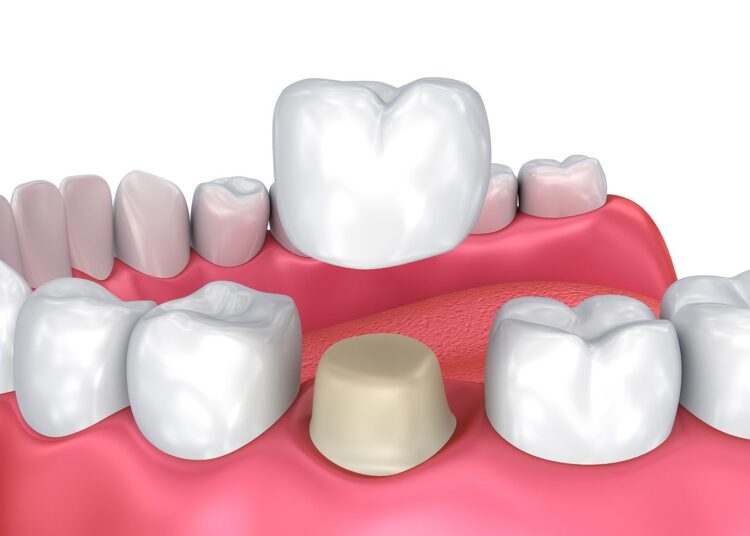
Source: trucaredentistry.com
A dental crown may be the best treatment choice if your kid has a significant cavity or a fractured tooth. Dental crowns are tooth-shaped caps that fit over the existing tooth of your kid to restore its strength and functioning. In most cases, we install crowns on permanent teeth; nevertheless, a baby tooth may require a crown in specific instances.
Both stainless steel and white dental crowns are available. Because they resemble your child’s tooth enamel, white crowns are an excellent alternative for permanent or noticeable teeth, similar to fillings.
Tooth Extraction
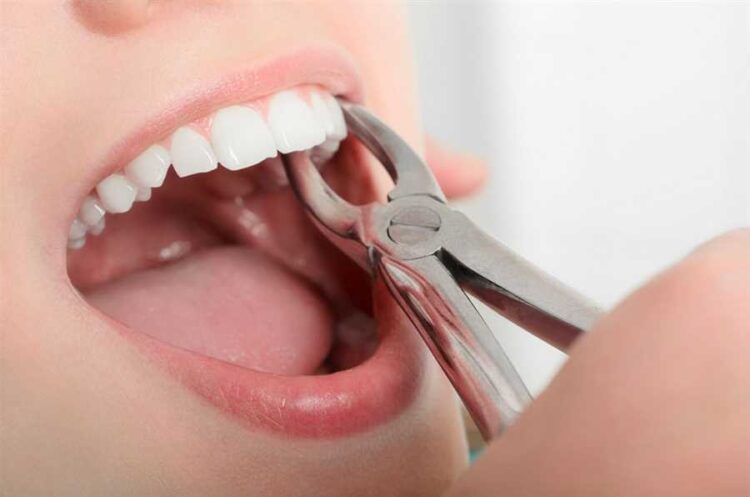
Source: drbryantdmd.com
A tooth can be extracted by either a dentist or an oral surgeon. A basic extraction includes loosening and then plucking out a visible tooth with dental equipment. A surgical extraction is often performed when a tooth has broken beneath the gum line or has not yet emerged.
5 Ways to Prevent Cavities in Children
Practice Good Brushing and Flossing Habits with Your Child
Your child will be more likely to adhere to the routine as they become older if they develop good habits at an early age. Children under the age of two should only use fluoride with a doctor’s or dentist’s approval. Children between the ages of 3 and 6 should use less toothpaste, and all children younger than eight should be assisted when brushing their teeth.
Ensure that your youngster strokes in circles when cleaning their teeth. Additionally, they should softly clean their gums to minimize accumulation. It is essential to monitor them to ensure that their teeth are clean.
Choose Non-Starchy, Non-Sticky Snacks
When it comes to producing cavities, sugar receives all the negative attention, but starchy snacks are equally a fault. Little fish crackers and pretzels are starchy foods that should be mentioned. Sticky and gummy starchy meals adhere to teeth for hours. This sticky substance nourishes microorganisms. The same applies to sticky snacks such as fruit-shaped gummy candies and raisins. Foods that adhere to teeth remain in the mouth for an extended period of time, feeding germs. Avoid them, especially if your child will be unable to brush for an extended period of time.
Choose foods that “melt” instead. For example, yogurt readily dissolves and melts in water and saliva. Similarly, cheese, almonds, apple slices, and other protein-rich items adhere to teeth and feed germs less frequently.
Skip the Sugary Drinks
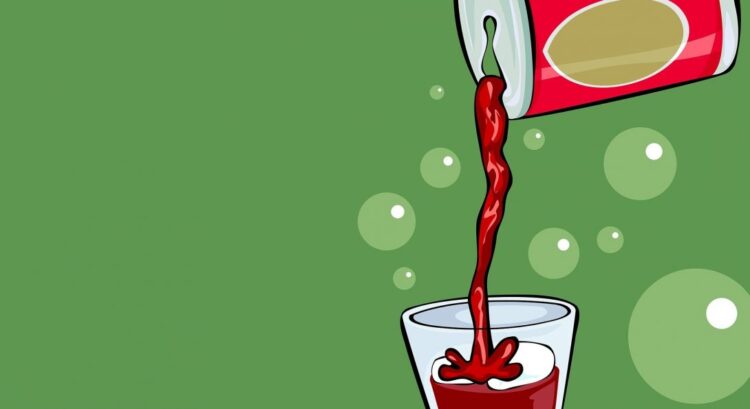
Source: dentistry.uic.edu
Fruit juice, soda, and other sugary beverages are not good for your child’s teeth. The AAP does not suggest juice for infants less than 12 months. After that, juices should be limited to 4 ounces per day and mixed with water (half-water, half-juice is best).
Make Water the Family Drink of Choice
The best beverage for your child’s teeth is regular tap water, which often contains fluoride to improve tooth enamel. Your child’s mouth is cleansed by drinking plenty of water, which also helps maintain saliva flow and washes away decay-causing germs.
Ask Your Dentist About Sealants
Molars might have deep grooves that are difficult to reach and brush well. Your dentist can apply sealants to your child’s teeth to protect them against cavities until their enamel has fully developed.

